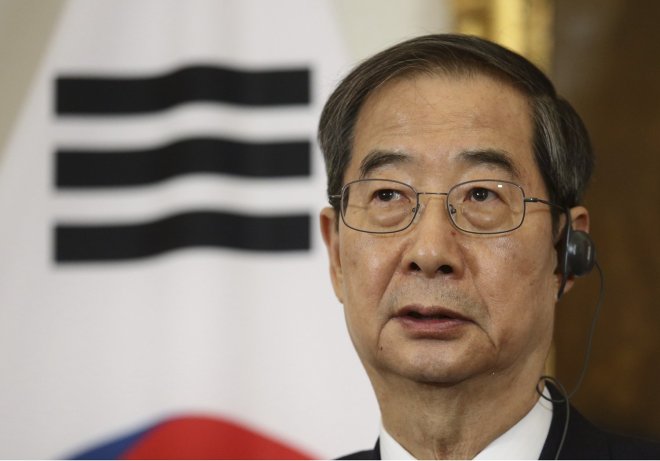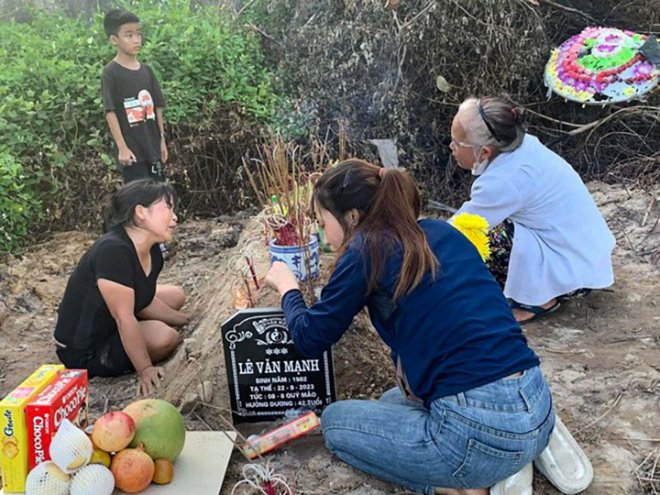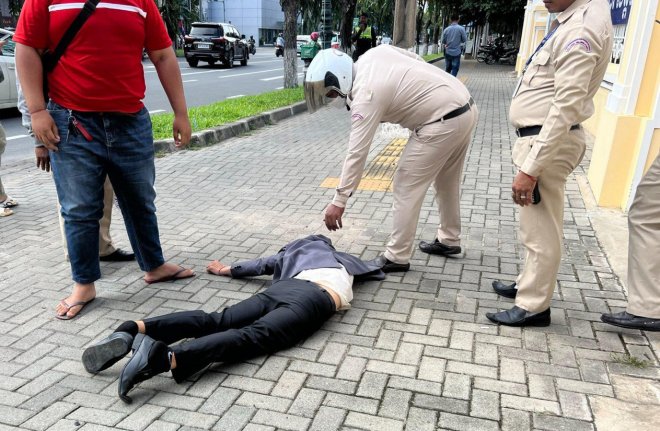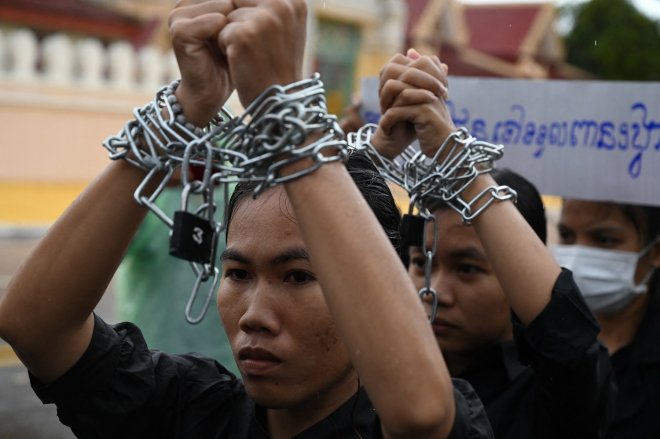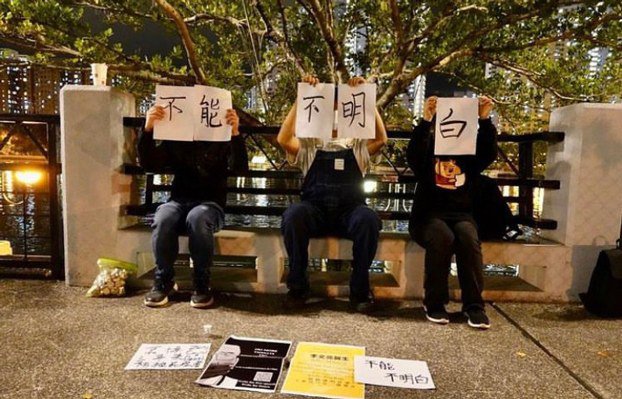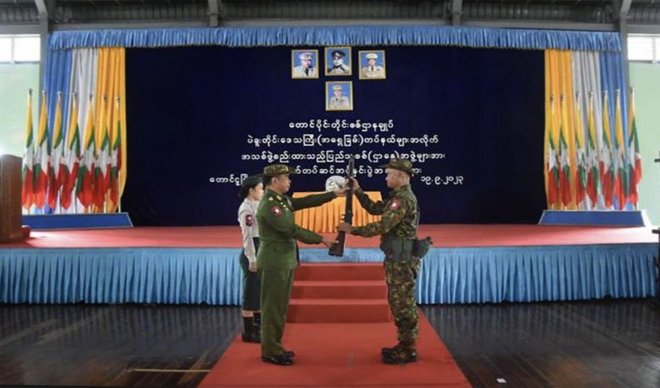Biden’s envoy offers dual approach for N Korea human rights uplift
U.S. President Joe Biden’s special envoy for North Korea human rights offered what appeared to be a two-prong approach aimed at improving the human rights situation in North Korea, underscoring Washington’s firm commitment to use all means necessary in materializing practical change.
“The United States government very much wants to work with you to make concrete changes and improvements in the human rights situation,” said Julie Turner on Wednesday, in a message to the North Korean regime as she extended Washington’s latest olive branch to Pyongyang.
In an exclusive interview with Radio Free Asia held in the U.S. embassy in Seoul, the special envoy said Washington was “ready to, if the opportunity exists, look for ways in which we can assist you [the North Korean regime] in achieving those goals.”
Turner’s outreach to the Kim Jong Un regime becomes particularly significant as numerous experts have emphasized the necessity of engaging directly with the hermit state to effect meaningful change in the country’s human rights situation.
While external pressures, sanctions, and international condemnations can highlight the problem, a constructive dialogue with the Pyongyang administration is instrumental in ushering in tangible improvements, they pointed out.
Turner, a veteran diplomat who began her inaugural three-day visit to Seoul on Monday, also directly conveyed her message to the North Korean people: Washington holds deep concerns for their well-being.
“The United States government does care deeply for your welfare, and your rights,” Turner said. “We are working diligently through the various mechanisms that we have available to hopefully make concrete improvements, so that one day, the North Korean people can also enjoy the same rights that Koreans in South Korean and Korean diasporas in the United States are able to enjoy.”
![]() U.S. special envoy on North Korean human rights issues Julie Turner meets with South Korean Unification Minister Kim Yung-ho in Seoul, South Korea, Tuesday, Oct. 17, 2023. (Jeon Heon-kyun/Pool Photo via AP)
U.S. special envoy on North Korean human rights issues Julie Turner meets with South Korean Unification Minister Kim Yung-ho in Seoul, South Korea, Tuesday, Oct. 17, 2023. (Jeon Heon-kyun/Pool Photo via AP)
The North has long been under international scrutiny for its alleged human rights violations. Reports from human rights activists, satellite imagery, and testimonials from escapees have indicated the presence of political prison camps, public executions, and widespread torture.
The concerns are rising, particularly among the international community, with Human Rights Watch reporting last week that Chinese authorities had forcibly returned over 500 North Koreans to the reclusive nation. The organization urged governments worldwide to condemn Beijing’s actions. Most of these North Koreans were civilians and religious figures who were arrested while attempting to travel to South Korea from China, RFA has learned.
The international community, including the United Nations, has repeatedly expressed concerns about the human rights situation in North Korea. Various resolutions have been passed condemning the reported abuses, and calls for investigations and accountability have been recurrent. Nonetheless, North Korea has consistently denied these allegations, dismissing them as propaganda against its regime’s security.
And Turner said she was committed to working with the international community – a move that may be interpreted as a possibility to apply a controlled pressure to materialize meaningful change in North Korea.
“I will plan to continue to engage both with the General Assembly Third Committee, as well as the Human Rights Council, and the various special rapporteurs and special procedures that have a mandate that focuses on repatriations, refoulement, refugees, and in other instances of enforced disappearances.”
During the interview, Turner also reaffirmed her commitment to reestablish the “consultative body” with South Korea to be “outcome-oriented.” The U.S. and South Korea agreed in collaborating to resume discussions through the body, aimed at more effectively addressing Pyongyang’s human rights situation, as stated by the South’s foreign ministry on Tuesday. The consultative body was set up in 2016 during the administration of the disgraced leader Park Geun-hye.
“I want to make sure, and I understand from my South Korean government counterparts, that the purpose of these consultations will be outcome-oriented,” Turner said. “Both the Ministry of Foreign Affairs and the Ministry of Unification, and [during] my meetings this week, we talked about concrete steps that we could take to make improvements in the human rights situation in North Korea.”
Turner did not elaborate on what specific goal she was targeting within the consultative framework, but added that she hopes to see the re-launch of the body by the end of this year.
With nearly two decades of service in the Bureau of East Asian and Pacific Affairs, Turner had served as the director of the Office of East Asia and the Pacific in the Bureau of Democracy, Human Rights, and Labor. Additionally, she held the role of director for Southeast Asia at the United States National Security Council.
Edited by Elaine Chan and Taejun Kang
“The United States government very much wants to work with you to make concrete changes and improvements in the human rights situation,” said Julie Turner on Wednesday, in a message to the North Korean regime as she extended Washington’s latest olive branch to Pyongyang.
In an exclusive interview with Radio Free Asia held in the U.S. embassy in Seoul, the special envoy said Washington was “ready to, if the opportunity exists, look for ways in which we can assist you [the North Korean regime] in achieving those goals.”
Turner’s outreach to the Kim Jong Un regime becomes particularly significant as numerous experts have emphasized the necessity of engaging directly with the hermit state to effect meaningful change in the country’s human rights situation.
While external pressures, sanctions, and international condemnations can highlight the problem, a constructive dialogue with the Pyongyang administration is instrumental in ushering in tangible improvements, they pointed out.
Turner, a veteran diplomat who began her inaugural three-day visit to Seoul on Monday, also directly conveyed her message to the North Korean people: Washington holds deep concerns for their well-being.
“The United States government does care deeply for your welfare, and your rights,” Turner said. “We are working diligently through the various mechanisms that we have available to hopefully make concrete improvements, so that one day, the North Korean people can also enjoy the same rights that Koreans in South Korean and Korean diasporas in the United States are able to enjoy.”
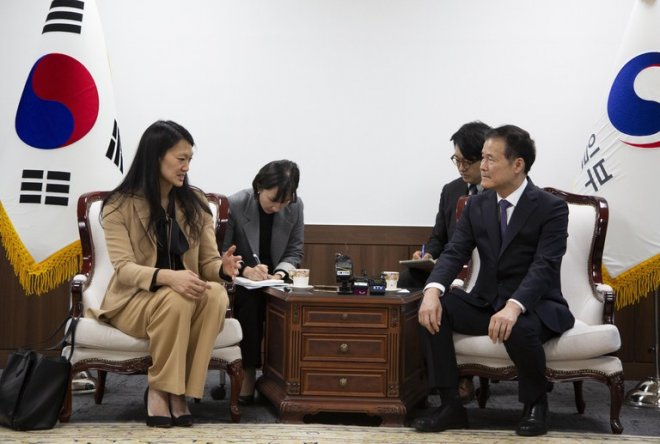 U.S. special envoy on North Korean human rights issues Julie Turner meets with South Korean Unification Minister Kim Yung-ho in Seoul, South Korea, Tuesday, Oct. 17, 2023. (Jeon Heon-kyun/Pool Photo via AP)
U.S. special envoy on North Korean human rights issues Julie Turner meets with South Korean Unification Minister Kim Yung-ho in Seoul, South Korea, Tuesday, Oct. 17, 2023. (Jeon Heon-kyun/Pool Photo via AP)The North has long been under international scrutiny for its alleged human rights violations. Reports from human rights activists, satellite imagery, and testimonials from escapees have indicated the presence of political prison camps, public executions, and widespread torture.
The concerns are rising, particularly among the international community, with Human Rights Watch reporting last week that Chinese authorities had forcibly returned over 500 North Koreans to the reclusive nation. The organization urged governments worldwide to condemn Beijing’s actions. Most of these North Koreans were civilians and religious figures who were arrested while attempting to travel to South Korea from China, RFA has learned.
The international community, including the United Nations, has repeatedly expressed concerns about the human rights situation in North Korea. Various resolutions have been passed condemning the reported abuses, and calls for investigations and accountability have been recurrent. Nonetheless, North Korea has consistently denied these allegations, dismissing them as propaganda against its regime’s security.
And Turner said she was committed to working with the international community – a move that may be interpreted as a possibility to apply a controlled pressure to materialize meaningful change in North Korea.
“I will plan to continue to engage both with the General Assembly Third Committee, as well as the Human Rights Council, and the various special rapporteurs and special procedures that have a mandate that focuses on repatriations, refoulement, refugees, and in other instances of enforced disappearances.”
During the interview, Turner also reaffirmed her commitment to reestablish the “consultative body” with South Korea to be “outcome-oriented.” The U.S. and South Korea agreed in collaborating to resume discussions through the body, aimed at more effectively addressing Pyongyang’s human rights situation, as stated by the South’s foreign ministry on Tuesday. The consultative body was set up in 2016 during the administration of the disgraced leader Park Geun-hye.
“I want to make sure, and I understand from my South Korean government counterparts, that the purpose of these consultations will be outcome-oriented,” Turner said. “Both the Ministry of Foreign Affairs and the Ministry of Unification, and [during] my meetings this week, we talked about concrete steps that we could take to make improvements in the human rights situation in North Korea.”
Turner did not elaborate on what specific goal she was targeting within the consultative framework, but added that she hopes to see the re-launch of the body by the end of this year.
With nearly two decades of service in the Bureau of East Asian and Pacific Affairs, Turner had served as the director of the Office of East Asia and the Pacific in the Bureau of Democracy, Human Rights, and Labor. Additionally, she held the role of director for Southeast Asia at the United States National Security Council.
Edited by Elaine Chan and Taejun Kang
